ICICTE Keynote Speakers
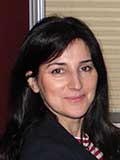
ICICTE 2023
Dr. Diamanto Vlachogianni
Research Director in the Environmental Research Laboratory (EREL) of the National Centre for Scientific Research “Demokritos”, Athens, Greece.
She holds a Ph.D. in Atmospheric Physics 1997 (Imperial College, London), M.Sc. in Remote Sensing 1993 (UCL, Imperial College, London), B.Sc. in Astrophysics 1992 (University College London). She has extensive expertise in the coordination and management of large-scale research and development projects with the participation of industry and academia at both National and European level. Ηer research interests include Atmospheric modelling, Climate research, Climatology and Climate Change and related impacts, Climate Services and Climate Modelling (Regional Scale). She has been the Principal Investigator of and scientifically involved in numerous R&D collaborative projects funded by the EC and National Entities.
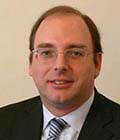
Professor António Moreira Teixeira
Associate Professor at Universidade Aberta (UAb), Portugal
With a PhD in Philosophy, he is Associate Professor of open, distance and network education at the Universidade Aberta (UAb), the Portuguese open university, where he has been Pro-Rector for Innovation in Distance Education and has chaired the Department of Distance Education and eLearning. He is also a researcher at the University of Lisbon and collaborates regularly with the Università degli Studi Roma Tre. His main research interest is on educational innovation, open education, particularly MOOCs, distance learning and learning futures. He has co-authored the first institutional pedagogical model in the world
dedicated to massive open education – the iMOOC. António Teixeira’s research also explores the relation between philosophy and education with a special attention to ethical and environmental issues. In this framework, he has been studying how open educational practices can contribute to widen citizen participation in climate change education. In his talk, he will be addressing the role of MOOCs for empowering people to think critically about global warming.
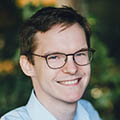
Dr Malte S. Ubben
Educational researcher at the WWU Münster, Germany
His main area of research is the development of mental models and modeling in sciences, especially in quantum physics and astronomy/astrophysics, as well as nature of science aspects in physics education. In his keynote, Dr Ubben will talk about how climate change is one of the biggest challenges for society of the 21stcentury. Research on modeling the climate is a thriving and important field and even netted a Nobel Prize in Physics 2021. How, then, can climate change be discussed effectively in physics classrooms? This talk will give some historical background about modeling and climate modeling and its role in physics as well as give ideas where climate change can be discussed in physics courses in education.
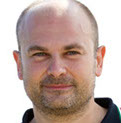
ICICTE 2022
Professor David Scaradozzi
Assistant Professor at Università Politecnica delle Marche, Italy.
Graduated in Electronic Engineering and PhD in Intelligent Artificial Systems, David Scaradozzi's research is focused on two main topics: (i) Educational Robotics, with special interests devoted to all the as- pects regarding the study and development of new robotic tools and lesson plans for teaching e-STrEM (environmental Science Technology robotics Engineering Maths) subjects, in formal and nonformal education; (ii) underwater robotics and marine technologies, focusing on tools for 3D scientific documentation of sea operative surveys for marine protected areas and archaeological sites study using Divers, AUVs, ROVs and other technological devices.

ICICTE 2020
Professor Eleni Mangina
Associate Professor, University College, Dublin, Ireland.
Professor Eleni Mangina, apart from being a long time participant in ICICTE, is Is the Deputy Vice Principal (International) of Ireland’s University College Dublin College of Science. She is also the ARETE H2020 Project Coordinator, an ESIPP SFI Funded Investigator, the FANTASIA Erasmus+ KA2 Action Project Coordinator, and the AHA DG CONNECT European Project Coordinator.
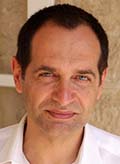
CICTE 2019
Dr Alex Grech
Faculty of Media and Knowledge Sciences, University of Malta; Director of the Commonwealth Centre for Connected Learning; Honorary Research Fellow at the University of Hull, UK.
Dr Grech has 30 years’ experience in business strategy and change management. After completing his accountancy articles, he held senior management positions in the European HQs of IPSA Reuters and Hitachi Data Systems. He is the founding Chairman of Heritage Malta and founding editor of “Technology Sunday”, the technology supplement for the Times of Malta. Dr Grech is currently the Maltese national expert on EU working groups on ICT in education and the future of higher education, and a senior advisor to the Ministry of Education on digital pedagogies and online learning.
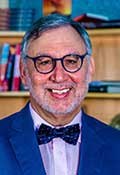
ICICTE 2019
Professor John-Peter Portelli
Professor in the Department of Social Justice Education and co-director of the Centre for Leadership and Diversity, OISE, University of Toronto, Canada.
Professor Portelli is a senior policy advisor for the Ministry for Education and Employment, Malta. He has published 17 books (including works of literature: 4 collections of poetry, a collection of short stories and a novel). His most recent book is Confronting Educational Policy in Neoliberal Times (with Stephanie Chitpin, Routledge, 2019). He has led research studies in Canada and Malta. His areas of research include: student engagement and students ‘at risk’; equity, diversity, social justice, and educational policy and leadership. Professor Portelli is also the chairman of the Commonwealth Centre for Connected Learning (CCCL), which is part sponsoring ICICTE 2019.
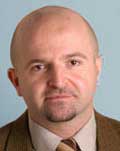
ICICTE 2018
Professor Charalambos Vrasidas
Professor of Learning Technologies and Innovation and Associate Dean for e-learning at the University of Nicosia.
Dr. Charalambos Vrasidas is co-founder and Executive Director of CARDET (Centre for the Advancement of Research and Development in Educational Technology), an international non-profit research and development organization based in Cyprus with partners from around the world. An innovator, designer, lifelong learner and social entrepreneur, he has designed and implemented more than 200 funded projects in more than 30 countries. A big part of his work at CARDET is focused on learning design, gamification, mobile learning, innovation and entrepreneurship, international development, cost-effectiveness in education, policy, and strategic leadership. He is also Professor of Learning Innovations & Policy and Associate Dean for e-learning at the University of Nicosia. He serves on the Executive Committee of the International Council for Educational Media and he is co-director of the Mediterranean Migration Network and The Municipalities Migration Network. He is Editor-in-Chief for the scholarly journal Educational Media International. He has published 11 books and more than 100 articles in journals, edited volumes and conference proceedings. For more information visit www.vrasidas.com and www.cardet.org.
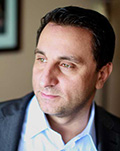
ICICTE 2017
Embracing a Pedagogy of Connected Learning: Designing Course Environments that Nurture Students’ Digital Fluencies
Professor Alec Couros
Professor of educational technology and media at the Faculty of Education, University of Regina, in Saskatchewan, Canada.
An award-winning educator, Alec helps his undergraduate and graduate students take up the incredible affordances of our connected world through the integration of educational technology in teaching and learning. Alec is also a well-recognized scholar and researcher who has given hundreds of keynotes and workshops around the globe on diverse topics such as connected/networked learning, digital citizenship, social media in education, and critical media literacy, providing educators, students, and parents with the knowledge necessary to take advantage of and thrive in our new digital reality. Finally, Alec is a passionate advocate of openness in education and demonstrates this commitment through his open access publications, considerable digital presence and contributions, and highly successful MOOCs and open boundary courses.
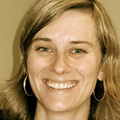
ICICTE 2016
Future considerations in the adoption of educational technologies
Dr Tannis Morgan
Associate Dean, Centre for Teaching, Learning, & Innovation, Justice Institute of British Columbia, Canada.
Dr Tannis Morgan is the Associate Dean, Centre for Teaching, Learning, & Innovation at the Justice Institute of British Columbia where she is responsible for developing and implementing an e-learning strategy, and leads educational technology innovation and research projects. These include mobile learning, simulations, open education resources, and emerging delivery models.
Tannis began her work in distance education and e-learning with the Distance Education and Technology Centre at the University of British Columbia (UBC), under the direction of Dr Tony Bates and Dr Mark Bullen where she completed her PhD examining online teaching in international distance education contexts. She has worked within the Office of Learning Technology (formally Distance Education and Technology) at UBC, and prior to coming to the JIBC, she was an instructional development consultant at the British Columbia Institute of Technology. She was a researcher with the Digital Learners in Higher Education research project with Dr Mark Bullen and colleagues from the University of Regina and the Open University of Catalonia.
Her current research focuses on student use of technology in applied education institutions and drivers that influence the uptake of open educational resources in higher education.
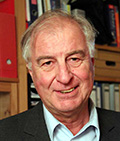
ICICTE 2015
Learning through Interaction and Creativity in Online Laboratories
Professor Michael E. Auer
Professor of Electrical Engineering at Carinthia University of Applied Sciences Villach, Austria and International Association of Online Engineering, Vienna, Austria
Dr. (mult) Michael E. Auer is Professor of Electrical Engineering at Carinthia University of Applied Sciences Villach, Austria. His current research is directed to technology enhanced learning and remote working environments especially in engineering.
He is author or co-author of more than 180 publications and leading member of numerous national and international organizations in the field of Online Technologies.
Michael Auer is founder and chair of the annual international IEEE EDUCON, ICL and REV conferences and chair or member of the Program Committees of several international conferences and workshops.
He works as an evaluator and coordinator of European Union funded research projects and is member in expert groups of the European Commission.
Michael Auer is Founding-President and CEO of the "International Association of Online Engineering" (IAOE) since 2006, a non-governmental organization that promotes the vision of new engineering working environments worldwide. In 2009 he was appointed as member of the Advisory Board of the European Learning Industry Group (ELIG).
In September 2010 he was elected as President of the "International Society of Engineering Education" (IGIP
Furthermore, he is one of the founders and Secretary General of the "Global Online Laboratory Consortium" (GOLC). GOLC is the result of an initiative started in 2009 at MIT to coordinate the work on educational Online Laboratories worldwide.
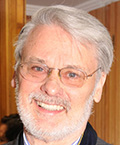
ICICTE 2014
"Looking forward by looking back”: a review of 25 years of editorials in The American Journal of Distance Education
Professor Michael Grahame Moore
Distinguished Professor of Education, Pennsylvania State University
Michael G. Moore is known in academic circles for his leadership in promoting the scholarship of distance education in the United States. He published his first statement of theory about distance education in 1972 and has achieved a number of ‘firsts’ in this field. While teaching the first graduate course in this subject at University of Wisconsin in the mid 70’s he was contributory to founding the national annual conference there.
Coming to Penn State in 1986 he founded the first American journal (American Journal of Distance Education), established the first Sequence of taught graduate courses, a national research symposium, and an online community of interest (DEOS). Before joining Penn State in 1986 he worked for nine years at the British Open University and has experience of teaching in all technologies and most client groups.
Moore has served on the editorial boards of all the main distance education journals and his publications include Contemporary Issues in American Distance Education (Pergamon Press, 1990), Distance Education: A Systems View, co-authored with Greg Kearsley (Wadsworth Publishers, 1996 and 2005), subsequently published in Chinese, Japanese and Korean, and the Handabook of Distance Education (2003 and 2007).
Academic degrees in both economics and education and an early seven-year career in African education led to a lifelong interest in education for development. This has included employment at the World Bank and numerous consulting assignments for UNESCO, the International Monetary Fund, and the Commonwealth of Learning as well as several foreign governments.
His keynote speech for ICICTE 2011 was a great success and he has since often participated in the conference.
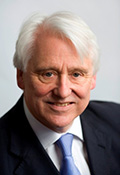
ICICTE 2013
Distance Education and Technology: A long marriage
Professor Alan Tait
Professor of Distance Education and Development at the Open University, UK.
Alan Tait is Professor of Distance Education and Development at the Open University and has a long record of professional practice, publication and the support of professional development in distance and e-learning. From 2007 to 2012 he was Pro Vice-Chancellor (Academic) at the Open University and was formerly Dean of the Faculty of Education and Language Studies. He is Editor in Chief of the European Journal of Distance and E Learning (EURODL), was from 1989-1998 Editor of Open Learning, was President of the European Distance and E-Learning Network (EDEN) from 2007-2010, is Co-Director of the Cambridge International Conference on Open and Distance Learning and a senior member of St Edmunds College, University of Cambridge. In 2012 he was awarded an Honorary Doctorate by Moscow State University for Economics, Statistics and Informatics. He also holds a Visiting Chair at Aarhus University.
He has worked widely in developing countries for international organisations such as UNESCO, the European Commission and the Commonwealth of Learning. Recent most cited publications include ‘What are Open Universities for?’, in Open Learning, 2008, Vol 23:2, pp 85-94, ‘Leadership Development for Distance and E Learning’, 2007, in the International Handbook of Distance Education, Eds. Evans T, Haughey M and Murphy D, pp 499-512, and ‘Planning Student Support for Open and Distance Learning’, in Open Learning, 2000, Vol 15, No 3, pp 287-299.
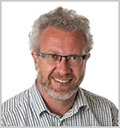
ICICTE 2012
Cooperative Freedom and Transparency in Online Education
Professor Morten Flate Paulsen
Professor of Online Education at the Norwegian School of Information Technology, Norway.
The presentation focuses on the opportunities to provide online education that combines individual freedom with meaningful cooperation. Online students often seek individual flexibility and freedom. At the same time, many need or prefer cooperation and social unity . These aims are difficult to combine, so the presentation discusses online education tools and services that support both individual freedom and cooperation. The presentation also elucidates the opportunities and challenges with transparency in online learning environments and provides examples and experiences from Universidade Aberta in Portugal and NKI Nettstudier in Norway.
Morten Flate Paulsen is the Director of Innovation and Development at NKI Nettstudier and Professor of Online Education at the Norwegian School of Information Technology (NITH) in Norway. He is President of the European Distance and E-Learning Network (EDEN) and was on the European Association for Distance Learning (EADL) R&D committee until November 2010. In the school year 2009-2010, he worked part time for Universidade Aberta in Portugal. From 1999 to 2005, Professor Paulsen was appointed as Adjunct Professor, at the Athabasca University, Centre for Distance Education in Canada. He has a Doctorate of Education from the Pennsylvania State University, Department of Adult Education and Instructional Systems. Professor Paulsen is the regional editor for IRRODL (The International Review of Research in Open and Distance Learning), EURODL (The European Journal of Open, Distance and E-Learning) and the Asian Journal of Distance Education. He is also on the Editorial Board of seminar.net.
He has worked with online education since he designed NKI's first Learning Management System in 1986 and published many books, reports and articles about the topic. Many of his publications and presentations are available at his personal homepage at http://home.nki.no/morten. His book Online Education and Learning Management Systems is available via www.studymentor.com.
You may also find more information about Professor Paulsen’s work at: http://home.nki.no/morten
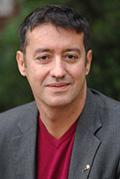
Simple Tools that can Revolutionse Feedback we Provide
Russell Stannard
Principal Teaching Fellow at the University of Warwick, UK.
In this talk Russell Stannard is going to present his "pioneering" work on feedback. He will talk about how he initially developed the idea, the research he has undertaken and the feedback from students. This idea has been taken up by literally thousands of teachers all over the world and he has presented his work in more than 15 countries. It has had widespread press coverage not only because of its impact but also because of its simplicity. It is an idea that can be quickly adopted and adapted to a whole range of teaching contexts and bring about real changes in the teaching and learning experience.
Read about his work in the Guardian 2012 http://www.guardian.co.uk/education/2012/jan/10/esl-video-feedback
Russell Stannard is a Principal Teaching Fellow at the University of Warwick, specialising in the application of media and technology to improve teaching, particularly in language learning. He runs the website www.teachertrainingvideos.com which provides step by step help videos for teachers who want to incorporate technology into their teaching. In 2008 he won the Times Higher "Outstanding Initiative" in ICT for the website and in 2010 he won the British Council "Innovation" award. The site gets more than a quarter of a million visits a year from teachers all around the world. Russell Stannard's work on feedback is especially well-known and his pioneering of the use of screen capture for feedback has received large scale press coverage around the world and his concepts were recently included in a report submitted to the UK government.
Find out more about Russell Stannard at www.russellstannard.com
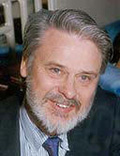
ICICTE 2011
Continuing Education and Distance Education: A Marriage of Convenience
Professor Michael Grahame Moore
Distinguished Professor of Education, Pennsylvania State University
Michael G. Moore is known in academic circles for his leadership in promoting the scholarship of distance education in the United States. He published his first statement of theory about distance education in 1972 and has achieved a number of ‘firsts’ in this field. While teaching the first graduate course in this subject at University of Wisconsin in the mid 70’s he was contributory to founding the national annual conference there.
Coming to Penn State in 1986 he founded the first American journal (American Journal of Distance Education), established the first Sequence of taught graduate courses, a national research symposium, and an online community of interest (DEOS). Before joining Penn State in 1986 he worked for nine years at the British Open University and has experience of teaching in all technologies and most client groups.
Moore has served on the editorial boards of all the main distance education journals and his publications include Contemporary Issues in American Distance Education (Pergamon Press, 1990), Distance Education: A Systems View, co-authored with Greg Kearsley (Wadsworth Publishers, 1996 and 2005), subsequently published in Chinese, Japanese and Korean, and the Handabook of Distance Education (2003 and 2007).
Academic degrees in both economics and education and an early seven-year career in African education led to a lifelong interest in education for development. This has included employment at the World Bank and numerous consulting assignments for UNESCO, the International Monetary Fund, and the Commonwealth of Learning as well as several foreign governments.

ICICTE 2010
The Problem of Context: The circumstances in which ICT can support learning
Professor Rose Luckin
The London Knowledge Lab and the Institute of Education, UK.
Rosemary Luckin is Professor of Learner Centred Design at the London Knowledge Lab, a visiting Professor of Informatics at the University of Sussex and an EPSRC Advanced Research Fellow.
Her research explores how to most effectively scaffold learning across multiple technologies, locations, subjects and times. At the LKL she is part of a group of researchers who share an interest in applying participatory methods to the development and evaluation of technology enhanced learning experiences. This work is interdisciplinary and encompasses education, psychology, artificial intelligence and HCI. It investigates the relationship between people, the concepts they are trying to learn and teach, the contexts within which they operate and the resources at their disposal.
She was appointed by the Minister for Schools as a non-executive director of Becta (the UK government agency leading the national drive to ensure the effective and innovative use of technology throughout learning) where she chairs their Research Advisory Group.
Her latest book: Redesigning Learning Contexts, was published by Routledge in April 2010.
More information can be found on http://tinyurl.com/8jcgej
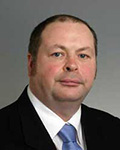
ICICTE 2009
Transforming Educational Technologists
Dr Simon Shurville
Program Director of Business Information Management and Library and Information Management, University of South Australia
Simon directs an innovative postgraduate program at the University of South Australia which integrates archival management, knowledge management, librarianship and records management. Simon is currently leading a transformation of the program’s online presence to facilitate experiential learning with a new institutional personal learning environment.
His recent work focuses on change, innovation and human resource management in flexible and technology enhanced learning. His current research interests with professional doctorate students are in facilitating ethical elicitation of indigenous knowledge and transferring archives threatened by climate change to safer havens. Simon recently co-edited a double special issue of Organizational Transformation and Social Change (OTSC) on ‘Technology Driven Change in Higher Education’ and has co-edited three special issues of Campus-Wide Information Systems presenting papers from ICICTE. He is currently co-editing a special issue of OTSC on ‘Renewing Libraries for the 21st Century’ and an issue of CWIS on ‘Innovative Assessment in the Australian Technology Network’. Simon is assistant editor of CWIS with responsibility for instigating and managing special and themed issues, which have included ‘E-Learning in China’ and ‘E-Portfolios’. He co-edited the successful book Words on the Web and has published on technology enhanced learning since the mid-1990s.
Simon holds a BA and a PhD in Artificial Intelligence and an MA in Change Management. He is a professional grade member of ALIA and a CITP and a fellow of the BCS and a fellow of the UK HEA. He has lectured for the University of Brighton, City University, Cranfield University, The University of Essex, The Open University (UK) and The University of Oxford.
Simon recently migrated to Australia where he is doing his best to figure out the rules of the national game.

ICICTE 2008
Horizons for Learning
Professor Gilly Salmon
Professor of E-Learning and Learning Technologies, University of Leicester
Gilly joined the University of Leicester in the UK in 2004 as Professor of E-learning & Learning Technologies, after 16 years with the Open University Business School. She is known for her research and practice in the arenas of development and change for successful e-learning processes and preparing for Learning Futures. Her research and practice spans the role of ICT in enabling change in Higher Education, through the development of research-led e-learning strategy, to pedagogical innovation in a wide variety of forms including mobile learning, wikis and blogs.
Gilly has two research degrees - one in online training and one in change in education. She is known for her many articles and commentary about the future for learning technologies and as an international speaker. She was awarded a National Teaching Fellowship in 2006. Prof Salmon is the author of the work now considered seminal in the field of teaching online called ‘E-moderating’, a 2nd Edition of which was produced in 2004, a recent book about designing for low cost collaboration in all online learning situations called ‘E-tivities’ and another on group learning ‘Learning in Groups’.
Websites:
www.le.ac.uk/beyonddistance
www.atimod.com
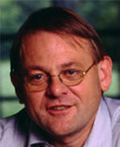
ICICTE 2007
Integrating Learning, Living and Working
Dr Rob Koper
Professor and Director of Learning Technologies Research, Open University of the Netherlands
Dr Koper has 22 years of experience in the field. Among other things, he was responsible for the development of Educational Modelling Language, currently an open standard through the IMS consortium (IMS Learning Design), and he leads or participates in a variety of EU-funded R&D projects. He is the coordinator of the EU Integrated Project TENCompetence, aiming at the development of an Open Source Infrastructure for Lifelong Competence Development. He serves and has served on a variety of editorial boards, program committees, and has been responsible for the organization of a large number of international conferences, seminars and workshops in the field, most recently the IEEE ICALT conference. Additionally, he has had numerous roles on management and advisory boards, such as the National Assessment Agency, the Digital University Consortium, the local government, and standardisation bodies such as IMS and CEN/ISSS.
More information on Professor Koper can be found at the following sites:
Publications:
http://scholar.google.nl/scholar?q=%22rob+koper%22&hl=nl&lr=&ie=ISO-8859-1&btnG=Zoeken
Research group website: www.learningnetworks.org
TENCompetence project: www.tencompetence.org
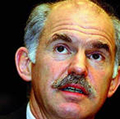
CICTE 2006
Information and Communication Technologies: From Learning and Education to Their Use in Practice
George Papandreou
President of PASOK, President of Socialist International, ex-Prime Minister of Greece
In his over 25 years as a member of the Greek Parliament, Mr. Papandreou has served terms as the Minister of Foreign Affairs (1999–2004), Minister of Education and Religious Affairs (1988-1989,1994–1996, Prime Minister (2009– ) and was Chairperson of the Parliamentary Committee of Education (1982–1985). He has been a member of the Board of the Foundation of Mediterranean Studies and the Foundation for Research and Self-Education. His numerous awards include being honoured by more than 15 countries.
Mr. Papandreou’s keynote speech discussed the efforts that Greece has made in developing educational software and the educational portal of the Ministry of Education and Religious Affairs as they relate to information communication technologies in education.
For more information on George Papandreou see http://www.papandreou.gr/
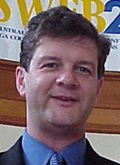
ICICTE 2004
Driving the Future of E-Learning
Dr John Eklund
Principal Usability Analyst, Access Testing Centre; Adjunct Senior Lecturer, The University of Sydney, Australia
Dr Eklund’s expertise is in the design, implementation and evaluation of interactive media. Most of his work involves consulting to corporate clients on process to build and evaluate e-learning. He has conducted dozens of usability studies for a range of government and corporate clients and specializes in designing cost-effective studies that maximize the benefit to development.
He has conducted Post Implementation Reviews on large systems for the Australian government. Published widely with over 40 publications in national and international peer-reviewed journals and conference proceedings, he is an editor of the Australian Journal for Educational Technology and Universal Access in the Information Society.
http://www.uxresearch.com.au/

Visiting the Past and Visioning the Future: Information & Communication Technologies and Learning in Our Transforming World
Professor Marcie Boucouvalas
Program Director and Professor of Adult Learning and Human Resource Development, Virginia Tech Graduate Center, USA
Dr Boucavalas is a resident faculty member of Virgina Tech’s Graduate Center. She has four decades of experience in the field, practicing within a variety of institutional contexts, in geographically diverse areas, in urban and rural settings, with a myriad of populations, special interest group and cultures from the elite to the impoverished.
She has served on the editorial board of the Adult Education Quarterly for over a decade and has been editor-in-chief for the Journal of Transpersonal Psychology since 2002 having served as a field editor since 1981. Dr Boucavalas has published, made presentations, or provided service/consulting in Europe, Asia, Africa and Australia, served as a Kellogg exchange professor to England, and was the USA representation to three World Assemblies in Adult Education and to two UNESCO Assemblies. She is listed in biographical reference publications such as Who’s Who in America, Who’s Who in American Education, Who’s Who of Emerging Leaders in America, The World Who’s Who of Women, The Who’s Who of Business and Professional Women, and the International Directory of Distinguished Leadership.
She is a member of the International Adult and Continuing Education Hall of Fame.http://www.halloffame.outreach.ou.edu/2003/Boucouvalas.html
ICICTE 2003
The Growth of Global Virtual Universities and Their Impact on National Universities
Dr Paul Babich
Professor and Director of Special Projects, UK eUniversities Worldwide Limited, United Kingdom
In his role as Director of Special Projects, Professor Babich is responsible for a number of areas including research, evaluation, and comparative analysis of the service and IT system in terms of other offerings around the world. He has particular interests in cost effectiveness of e-learning, critical success factors for virtual universities, and comparative analysis of Managed Learning Environments. Formerly he was at Sheffield Hallam University where he was Professor of Telematics and Head of Department of Multimedia and Networks within the School of Computing and Management Sciences. Prior to this, he had been for many years at the British Open University, working as a project manager in several academic and support departments, ending up as Assistant Director of the Knowledge Media Institute. He has been a Research Fellow at the Mathematical Institute, Oxford and a project manager in ICL (now Fujitsu). He is active in several UK e-learning bodies such as the Association for Learning Technology and the Joint Information Systems Committee.
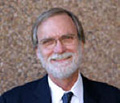
The Revolution is Over! So Who Won?
Dr Craig Blurton
Head, IT & Teaching Group, Centre for the Advancement of University Teaching (CAUT), University of Hong Kong, China
At the CAUT of the University of Hong Kong, Dr. Blurton is responsible for helping develop policy and participating in strategic planning initiatives focused on information technologies in education, identifying and working with promising academic staff initiatives in multimedia production, conducting research into the effective uses of instructional technologies, and promoting the use of IT at the University. He is Deputy Chair of the HKU Academic Council for Information Technology in Education, and Partnership Manager for the HKU/IBM ThinkPad computer program. Prior to coming to HKU, Dr Blurton was Associate Director of the National Aeronautics and Space Administration Classroom of the Future in the United States, NASA’s premier research and development laboratory for educational technologies.
ˆ
TOP



